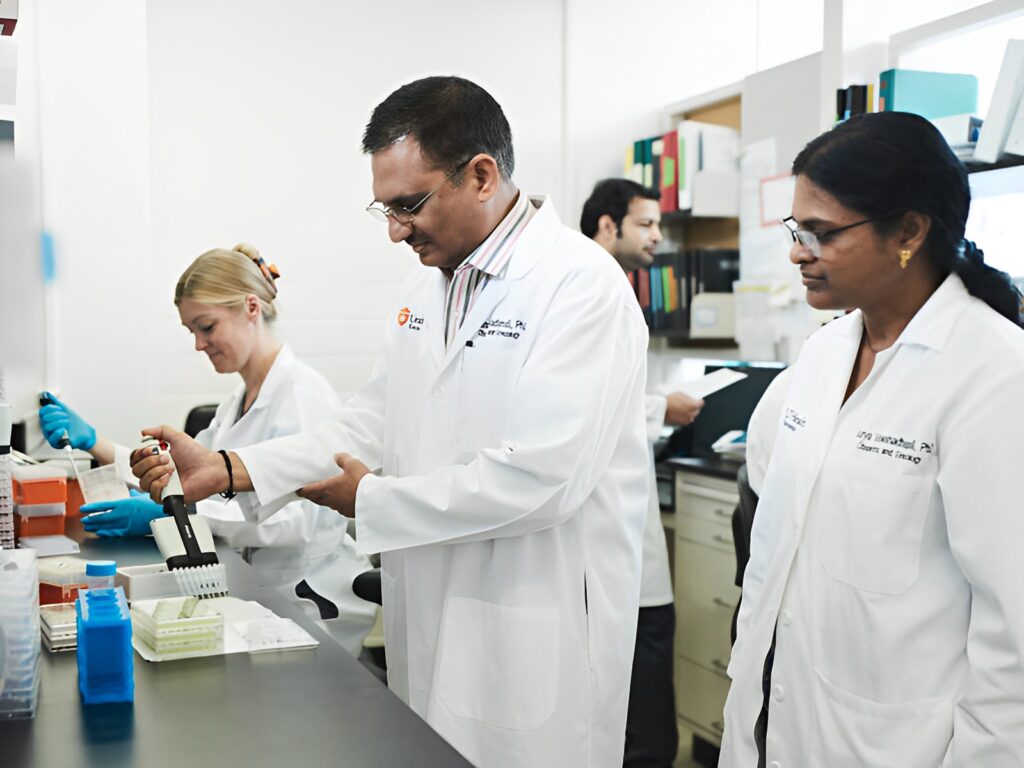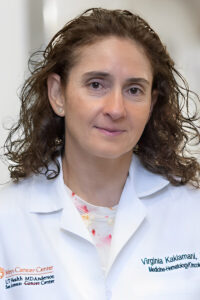Mega Doctor News
By Will Sansom, UT Health San Antonio
The Mays Cancer Center at UT Health San Antonio — South Texas’ only National Cancer Institute-Designated Cancer Center — is putting a decades-old antidepressant drug to new use in treating breast cancers that don’t respond to existing therapies.
Research in the Joe R. and Teresa Lozano Long School of Medicine at UT Health San Antonio provided compelling evidence of the drug’s anticancer activity. The discovery led to a clinical trial that benefited 15 breast cancer patients at the Mays Cancer Center.
Imipramine, the antidepressant, was approved by the U.S. Food and Drug Administration (FDA) in 1959 to treat a major depressive disorder. Long prescribed to cancer patients to fight depression, researchers have reported anecdotally that it also appears to have anticancer activity, said Ratna Vadlamudi, PhD, professor of obstetrics and gynecology and co-leader of the Cancer Development and Progression Program at the Mays Cancer Center.
The Vadlamudi laboratory is a training ground for tomorrow’s scientists — postdoctoral fellows, graduate students, and younger scholars. Vadlamudi, who has made many research discoveries in cancer, advised his protégés that the National Cancer Institute, part of the National Institutes of Health, prioritizes the repurposing of FDA-approved drugs as cancer treatments. He showed the youngest team member, Arhan Rao, a library of approved drugs. Rao studied the list and made observations. He asked if the laboratory might set its sights on imipramine. Vadlamudi and his team agreed.

The results are exciting. Imipramine inhibits triple-negative breast cancer and estrogen receptor-positive breast cancer in mouse and human tumors. These two cancers are notoriously difficult to treat in patients. Cancer Letters, a peer-reviewed journal, published the team’s results:
By reducing the signaling of the hormone estrogen, imipramine stunts the growth of estrogen receptor-positive breast cancers.
The drug also interferes with DNA repair, limiting the survival of triple-negative breast cancers. (DNA is a molecule that contains the genetic instructions we need for our bodies to operate. Because DNA is constantly under attack from factors such as radiation from the sun, DNA repair is extremely important for all cells. Without DNA repair to help them survive, cancer cells are vulnerable.)
This solid foundation of knowledge set the table for the clinical trial directed by Virginia Kaklamani, MD, leader of the Breast Cancer Program at the Mays Cancer Center and professor of medicine in the Long School of Medicine. The clinical team gave imipramine to women newly diagnosed with breast cancer who awaited surgery.
“We typically have a window of two to three weeks or so between the diagnosis and the surgery, and this is an opportunity for us to give patients a drug and test to see how it does on cancer tissue,” Kaklamani said.
The care team obtains a biopsy as part of the initial diagnosis and another tissue specimen during surgery. “This affords two-time points so we can see how cancer has changed with the imipramine treatment,” Kaklamani said. “We did that in 15 patients, and overall, we were able to show that imipramine can decrease tumor growth.”
This small pilot study, funded by the Mays Cancer Center, is a preliminary experiment to show that imipramine is an active drug in breast cancer, Kaklamani said.
“FDA-approved drugs will be safe, as they are used to treat other diseases,” Vadlamudi said. “If the same drugs kill cancer cells, they can be used in clinics immediately.”
This perfectly reflects the National Cancer Institute’s goal to repurpose existing drug therapies for cancer. It gives new hope to South Texas women — and patients worldwide — diagnosed with these hardest-to-treat breast cancers.
UT Health San Antonio has more than 1,700 ongoing research studies that involve humans, including 450 clinical trials. These clinical trials range from endodontics and respiratory care to diabetes treatments and cancer therapies.
Source: UT Health San Antonio











